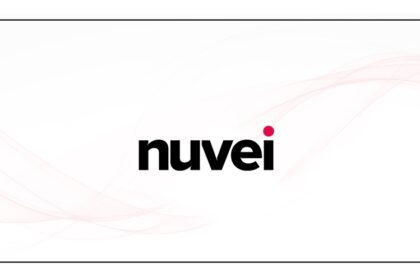The latest stock market correction cost me about five times what I made consulting part-time for four months. If I were smarter, I would have sold 100% of my rollover IRA before stocks started to tumble, then bought back in several weeks later. Alas, I don’t possess such acumen.
This experience got me thinking about how pointless it is to work if you’re just going to lose significant money in your investments. At some point, you may start to regularly make and lose more from your investments than from your day job. Unless you absolutely love your job, continuing to trade time for money may become futile.
This post isn’t for those still early on their path to financial freedom. Most of us need to work hard for at least a couple of decades to build up enough capital to generate sufficient passive income to cover basic living expenses. This post is also less relevant for those without significant variable compensation, such as performance bonuses and stock grants.
However, for those with substantial variable compensation in the form of year-end bonuses, commissions, and company stock, this post is for you. If you are wondering whether you should retire or transition to more enjoyable work that pays less, this post may help you break free.
It’s Not Worth Working If Your Net Worth Doesn’t Grow
Some might argue that working for money can at least help reduce the decline in net worth when your investments are losing value. Many may even take the stance that working more during a bear market is the best way to buffer the downside.
However, I’d like to suggest the opposite approach.
If you’re working hard while your net worth is only slowly growing or even declining, you have a low Return on Effort (ROE) or even a negative ROE. When your ROE is low or negative, you need to work less or stop working to improve your ROE.
For those who don’t know, traditionally, ROE standards for Return On Equity. The formula is (Net Income / Shareholder’s Equity) X 100. A high ROE indicates that the company is effectively using shareholders’ equity to generate profits.
In my version, Shareholder’s Equity is equivalent to Effort. If you decrease the denominator you will increase your Return On Effort and vice versa.
For those whose jobs include compensation in company equity and large year-end bonuses, you should consider leaving once you realize your company isn’t making progress. Here are some examples:
Low Return On Effort Job: Nike
Nike’s stock price is back to where it was in mid-2018, six years ago. Competitors like On are taking market share from Nike with more innovative, lower-priced shoes and clothing.
I love Nike products, and all my sports shoes are by Nike. But holy heck, their shoes are now incredibly expensive. The retro Air Jordans I used to collect now cost $199 before tax. Who can comfortably afford that?
Imagine joining Nike in 2018 with 30% of your compensation in stock. Your $125,000 annual salary is nice, but you’re not getting rich off your paycheck. You were counting on Nike stock to appreciate each year at least as much as the S&P 500 to one day afford a home. But now you can’t.
Do you soldier on or try to find a new job at a smaller, faster-growing competitor? If the compensation was the same, I’d probably choose the latter.
That said, I’m buying Nike stock now after a successful Olympics. I’m hoping there will be a turnaround in sales. I’m willing to invest up to $20,000 in the stock, but I’m not willing to work there. Big difference.

Low Return on Effort Job: Intel Corporation
Intel’s stock is down 57% since August 2019, with its share price back to its 1998 low. This is a disaster given the company has fallen behind other chipmakers in innovation.
Imagine joining the company in 2019 right out of college and diligently participating in the employee stock purchase plan. You didn’t sell a share because you believed in the CEO, who makes multi-millions a year.
It should have been clear by 2021 that Intel was getting lapped by its competitors. Staying at a sinking ship is demoralizing and bad for your pocketbook. The $50,000 in shares you were granted in 2019 are now worth $21,500.
Maybe quiet quitting and hoping are the only ways forward as it will be tough finding a better job after being at an underperformer for so long.

High Return On Effort Job: NVIDIA
Meanwhile, your college classmate joined NVIDIA in 2019 and received shares when it was at $4. His $50,000 worth of shares granted in 2019 is now worth $1,309,375. But he’s actually got closer to $5 million worth of shares because he kept receiving stock grants every year for five years.
Sure, a lot of outsized gains are due to luck. But it was also becoming clear by the end of 2022 that the artificial intelligence revolution was here to stay, and massive CAPEX would be spent by big tech companies for NVIDIA’s chips.
If you paid any attention to the latest quarterly results from Google and Microsoft, they said they are increasing their investments in artificial intelligence. These companies believe it is more risky to invest too little than too much.
As a result, I’m still not buying Intel after such a tremendous decline. However, I am nibbling on NVIDIA after the 20%+ sell-off.

Low Return on Effort Job: Credit Suisse Group
You might think it’s unfair for me to point out underperforming companies in hindsight. And you’re right. Nobody joins or continues to work at a company long-term if they think the company is going down. Further, I didn’t short these companies.
Five years ago, plenty of analysts and investors thought companies like Nike, Intel, Bumble, Sofi, Teladoc Health, Zoom, and SPAC companies were great investments. But anyone who was long-term bullish on these companies has been dead wrong.
So let me give an example of a low return on effort job that was close to home: Credit Suisse. I worked for Credit Suisse from 2001 to 2012, when I decided to engineer my layoff and say goodbye to banking for good.
A Clear Structural Decline in the Equities Business
Ever since the global financial crisis began in 2008, Credit Suisse’s stock price has generally headed down. As I became more senior, a greater percentage of my total compensation was given in deferred stock that vested over four years. In 2010, I was hopeful for one year that the stock would finally grind higher. But then the stock continued to head south until I left in 2012.
The business was in structural decline due to the rise of electronic trading. The sell side was getting disintermediated, with commission prices continuing to drop. Meanwhile, research was getting unbundled, which meant buy side firms were no longer paying for research by directing large trading volumes to sell side firms.
I listened to all internal and external management updates to understand the profitability of the business. I paid attention to what competitors were doing. By 2011, it was clear to me that the institutional equities business was in trouble and pay would continue to decline no matter how well you did with your clients. As a result, I decided to volunteer myself for a layoff and received a severance package for my 11 years of loyal service.
I was never quite impressed with management in New York City, compared to management at my old shop, Goldman Sachs. Then in March 2023, Credit Suisse collapsed due to incredibly poor risk management and was ultimately taken over by rival UBS for pennies on the dollar ($3.3 billion).
Company’s Stock Price Headed To Zero
As you can see from the Credit Suisse chart below, its share price continued to decline after I left in 2012. I no longer desired to work 60+ hours a week for declining compensation. That would have been incredibly demoralizing. All I wanted was a correlation with effort and reward. Pay based on merit, in other words.
Further, under President Obama, the top marginal income tax rate increased to 39.6%. Meanwhile, the long-term capital gains and qualified dividend tax rate was increased to 20% for taxpayers in the 39.6% marginal tax bracket. To add further tax pain, an additional net investment income tax of 3.8% was applied to the capital gains of high-income earners.
No thank you! My Return on Effort was plummeting. I wanted out ASAP.

Pay Careful Attention to Your Company’s Performance
If you want to improve your Return on Effort, pay attention to your company’s performance. This includes listening in on internal and external quarterly management calls and tracking the company’s share price, including its relative performance compared to its three closest competitors. Are you in a growing industry or declining industry?
If you wouldn’t invest in the company, you shouldn’t work for the company. Please don’t be an indifferent employee who just clocks in and works for a paycheck.
Working for money is the main reason why most of us work. However, we also want to feel proud of where we work. Additionally, we’d ideally like the company to thrive after we leave, so we feel that our work, our life’s work, mattered.
Even though Credit Suisse went under 11 years after I had left, I still felt a bit melancholy. I worked hard and met some incredible colleagues and clients from age 24-34. For the firm to be taken over by its biggest rival creates a feeling of defeat; like I had wasted some of my youth.
Startup Employees Need to Be More Careful About Wasting Their Time
Since 2012, I’ve consulted for various fintech startups given the synergies they have with my writing on Financial Samurai. However, only one company I consulted with has had a good exit: Empower (previously Personal Capital). Every other company has failed or was taken under with no big equity windfall for employees.
As a startup employee, you must pay careful attention to the business metrics of a company. If management is transparent, they will share all the details with employees. However, as soon as the growth trajectory slows, you must dive deep into why and whether things will get worse or better.
The hype and excitement for growth and riches are much greater at a startup. But as any limited partner in a venture capital fund knows, most startups (~90%) fail to provide a positive return. As a result, if you’re working at an early-stage startup, understand that you’re unlikely to make a lot of money from your equity either. Most people don’t win the lottery! In fact, most people who play the lottery get poorer.
Remember, your time is extremely valuable. Your window of opportunity to get rich is not large. If you’re spending your time working for an underperforming company, it means you’re not spending your time working for an outperforming one. Over time, the financial performance gap will widen.
Therefore, it’s imperative to recognize any negative structural changes in your company’s business and leave. The real estate industry, with declining real estate commissions, comes to mind.
For Those Suffering From “One More Year Syndrome”
For those suffering from multiple years of hanging on, use a recession, stock market crash, or company underperformance as motivation to leave.
If you’re no longer making a lot of money or are losing money, there’s no point in wasting another minute working at your job. Your Return on Effort will significantly improve if you decide to do something more enjoyable instead.
After you leave your job, you’ll naturally find something more meaningful that will provide a greater ROE. The ROE doesn’t have to always be financial; it could involve fulfilling a bucket list, improving life satisfaction, or being a more present parent. If you’re retiring, then by definition, you want to spend your time on things other than making maximum money.
When stocks are soaring and the economy is booming, that’s when you want to go all-in on work because your ROE will be highest. It’s easier to forsake your hobbies, your health, and leave your kids with others when you’re making money hand over fist.
But even in a booming market, if you have enough investments, they may provide enough financial reward so you never have to work again.
If you end up trading zero time to make money, then in a bull market, your ROE will be infinite, and that feels incredible. If you end up losing money from your investments while spending zero time working, you may not feel as bad either.
The Bottom Line
Spend time working only if you feel you are receiving a high-enough ROE. Maybe that high-enough ROE provides a net worth growth rate that is double the growth rate of the S&P 500. Or perhaps that high-enough ROE is the joy you feel being part of a good team while also saving 30% for your retirement.
If a steady paycheck with minimal raises, bonuses, and no stock compensation is sufficient for you, then by all means, continue working. However, if your Return on Effort is not satisfactory, stop wasting your time.
Reader Question And Suggestions
Why do employees stay in dead-end jobs? Do you find it pointless to work during a bear market? How do you cope with the feeling that your efforts are wasted when your company’s share price is declining and you’re losing money on your investments? Do you work harder or ease up during an economic boom?
If you want to break free from an underperforming company with a potential severance, read How To Engineer Your Layoff. You’ll learn strategies that thousands have used to walk away from their jobs with millions in their pockets.
My wife and I engineered our layoffs in 2012 and 2015 and have never returned to full-time work since. Receiving a severance was the greatest catalyst for us to live our ideal lives. Don’t waste your time working at a company that is structurally dying. You will regret it when you look back on your life.







